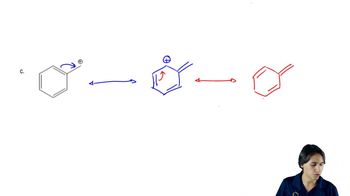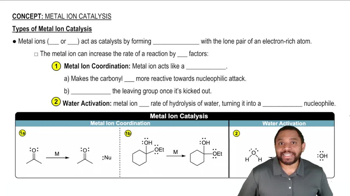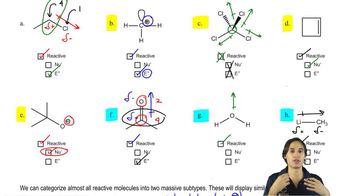Multiple Choice
Which is NOT a valid resonance contributor of acetamide?


 Verified step by step guidance
Verified step by step guidance Verified video answer for a similar problem:
Verified video answer for a similar problem:



 3:34m
3:34mMaster The rules you need for resonance: with a bite sized video explanation from Johnny
Start learning